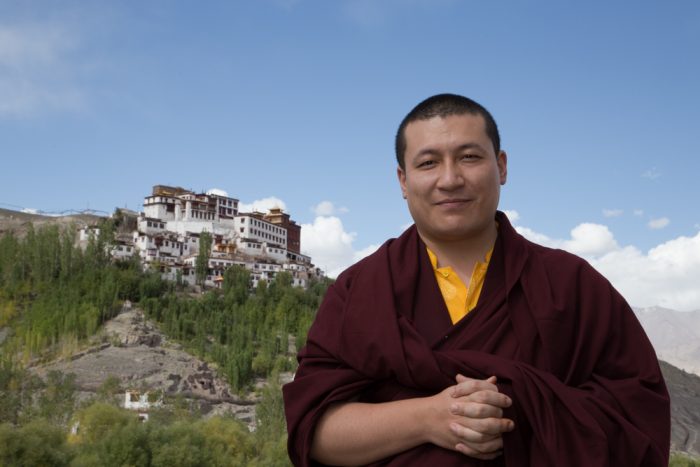Karmapa Public Course 2025: Impressions
March 15, 2025
Thaye Dorje, His Holiness the 17th Gyalwa Karmapa, shares a teaching for students on the subject: ‘Inner Wealth for the Buddhist practitioner.’
Gautama Buddha, the founder of what is now known as Buddhism, throughout his lifetime always taught his direct experiences and absolute realisations to others, with the motivation to benefit all sentient beings.
Being a Buddhist, I have been using this particular term ‘inner wealth’ as a medium to share Buddha’s teachings with others who may benefit from it.
Also, in order to indicate that all of the qualities that are cultivated on the Buddhist path originate from within, I have been using the word ‘inner.’
Depending on what we are searching for, there are various kinds of wealth in life. Just ask yourself or look up the term in a dictionary, and you will find that there are almost endless possibilities.
One way of defining wealth is that it is a means to fulfil our desired aims.
For example: knowledge of medicine is a kind of wealth to a doctor, literacy is wealth to a scholar, knowledge of the economy is wealth to a business person, and knowledge of spirituality is wealth to a religious person.
From a Buddhist perspective, wealth is the practice of true kindness and genuine wisdom.
The practice of true kindness and genuine wisdom is a means to eradicate both the causes of and conditions for an individual’s physical and mental poverty. The effect is that the individual gains the state of absolute cessation, which is absolute prosperity.
A mind disturbed by the anxiety and confusion (Sanskrit: dukkha) of not realising its true nature is in a state of poverty. The mind possesses the potential or essence to overcome anxiety and confusion – hence ‘true nature.’
Absolute prosperity is the state of cessation of the causes of anxiety and confusion (karma and klesha).
The path to overcome anxiety and confusion and their causes is ‘inner wealth,’ so to speak.
From that perspective, inner wealth can be interpreted as a combination of several active components:
The experience of meditation is like getting into a character, like someone who’s forgotten his or her identity. Relying on this method called meditation seems to require the person to get into that character, all the while not realising that that very character is yourself.
The means of meditation is one of the most important parts of practice to a Buddhist, because it is the final step to begin acquiring absolute prosperity.

Thaye Dorje, His Holiness the 17th Gyalwa Karmapa. Photo / Magda Jungowska.
Follow Karmapa on social media